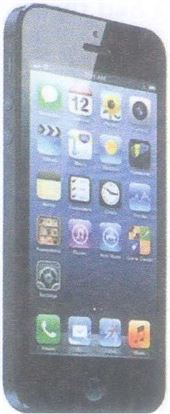technology can bring a good change FCE reading part 5
آیا تکنولوژی شرایط را بهتر می کند؟

3 A change for the better?


Vocabulary: Technology
1 Look at the choices below. For each one, discuss the following questions, giving reasons for your answers: TALK ABOUT THESE SUBJECTS
Which, if any, of the alternatives do you tend to do more? Would you prefer to do any of the other alternatives?
- phone people using a landline phone, a mobile phone or a personal computer
- use a hand-held mobile phone or a hands-free mobile phone with a headset or remote control
- use a tablet, personal computer, netbook, laptop, smartphone, or other device to log on to the Internet
- communicate with friends via email, text, chat rooms or social networking sites
- use textspeak or whole words when texting people
- buy CDs or download music
- watch films online, on DVD, TV or another device
- take photos with a digital camera, mobile phone, tablet or other device
2 Underline the correct alternative to complete the meanings of the items of textspeak. The first one has been done for you.
1 GTG : Got To Go
2 BFN
3 LOL
4 BTW
5 IDK
6 IMO
7 HBO
8 FYI
9 ROFL
10 ISWYM
Reading and Use of English Part 5
Multiple choice
1 C Read the following short paragraph and discuss the question.
You are going to read an article by Australian journalist Susan Maushart about her book The Winter of Our Disconnect. The book is an account of what she calls 'The Experiment', a six-month period during which she and her three teenage children stopped using most of their electronic media, such as computers, televisions, games consoles and mobile phones.
What effects do you think The Experiment had on the writer's family? TALK ABOUT IT
2 Read through the article quite quickly. Which, if any, of your ideas in exercise 1 are mentioned? DO IT NOW
Digital detox: Why I pulled the plug on my family
There were lots of reasons why we pulled the plug on our electronic media ... or, I should say, why I did, because my children would rather have volunteered to go without food, water, or hair products. At ages 14, 15, and 18, my daughters Sussy and Anni and my son Bill don't use media. They inhabit media. And they do so exactly as fish inhabit a pond. Gracefully and without consciousness or curiosity as to how they got there. They don't remember a time before email, or instant messaging, or Google.
When my children laugh, they don't say 'ha ha'. They say 'LOL'. They download movies and TV shows and when I remind them piracy is a crime, they look at one another and go 'LOL'. These are children who shrug indifferently when they lose their iPods, with all 5000 tunes plus video clips, feature films, and 'TV' shows (like, who watches TV on a television anymore?). 'There's plenty more where that came from,' their attitude says. And the most infuriating thing of all? They're right. The digital content that powers their world can never truly be destroyed.
As a social scientist, journalist, and mother, I've always been an enthusiastic user of information technology. But I was also beginning to have doubts about the power of media to improve our lives - let alone to make them 'easier'. I'd noticed that the more we seemed to communicate as individuals, the less we seemed to function together as a family. And on a broader scale, that the more facts we have at our fingertips, the less we seem to know. That the 'convenience' of messaging media (email, SMS, IM) consumes ever larger amounts of our time. That as a culture we are practically swimming in entertainment, yet remain more depressed than any people who have ever lived.
Our family's self-imposed exile from the information age changed our lives infinitely for the better. I watched as my children became more focused, logical thinkers. I watched as their attention spans increased, allowing them to read for hours at a time; to hold longer and more complex conversations with adults and among themselves; to improve their capacity to think beyond the present moment. They probably did no more homework during The Experiment than they had done before, but they all completed it far more efficiently and far more quickly.
The older children took the opportunity to go out more - shopping, visiting, or clubbing in Anni's case, and hanging out at the pool or playing saxophone in somebody's garage in Bill's. The Experiment forced us to notice food more. Before, eating had been a side dish. Now it was the main course, or at least one of them. Our approach to cooking changed, too, especially for the girls. They'd started out as reasonably competent cooks, but by the end of The Experiment they were capable of turning out entire meals with ease.
The Experiment also confirmed my strong suspicion that media had been robbing Sussy of sleep for years. She'd been our family's most militant multitasker, and the one who'd been attracted by a digital lifestyle at the youngest age. Unplugged, the changes to her sleep patterns, energy levels, and mood were correspondingly dramatic. The evidence strongly suggests she is no isolated case. One study found that children who spend more time online also drink more caffeinated beverages, with a resulting effect on their prospects of sleeping well. 'Subjects who slept the least also multi-tasked the most,' the authors concluded.
No amount of talking to Anni, Bill, and Sussy could ever have persuaded them of the extent of their media dependence as eloquently as even a week without information technology. But by six months, the time had come to return to what our culture (rightly or wrongly) has decided is 'normal'.
3 Read the article again. For questions 1-6, choose the answer (A, B, C or D) which you think fits best according to the text.
HOW TO GO ABOUT IT
- Read the article first for an overall understanding. (You did this in exercise )
- Find the part of the article which relates to the question you are answering. As in the exam, the questions for this article appear in the same order as the information in the text.
- Eliminate the options which are clearly wrong, then check the option or options you have not eliminated.
- If you still cannot decide, choose one of the options. Marks are not deducted for incorrect answers.
1 The writer says her children 'inhabit media ... as fish inhabit a pond' to show that
2 How does the writer describe her children's reaction to losing their iPods?
3 What does the writer say about information technology in paragraph 3?
4 The writer says that the period without electronic media enabled her children
5 In what way did the Maushart family's relationship with food change?
6 What does the writer mean by 'she is no isolated case' in line 34?
Reacting to the text
What effects might a similar experiment have on you and your family? TALK ABOUT IT
Do you think people have become too dependent on information technology? Why/Why not? TALK ABOUT IT
What to expect in the Exam
In the exam, the six multiple-choice questions may focus on some of the following features:
the writer's use of comparison, e.g. question 1.
the attitude or opinion of the writer or someone mentioned in the text. e.g. question 2.
the main idea expressed in a paragraph, e.g. question 3.
a detail in the text. e.g. question 4.
the meaning of a word or phrase. e.g. question 6.
There may also be a question testing global understanding of a feature of the whole text. such as the writer's reason for writing it or the overall tone of the text. This type of question would come last.


